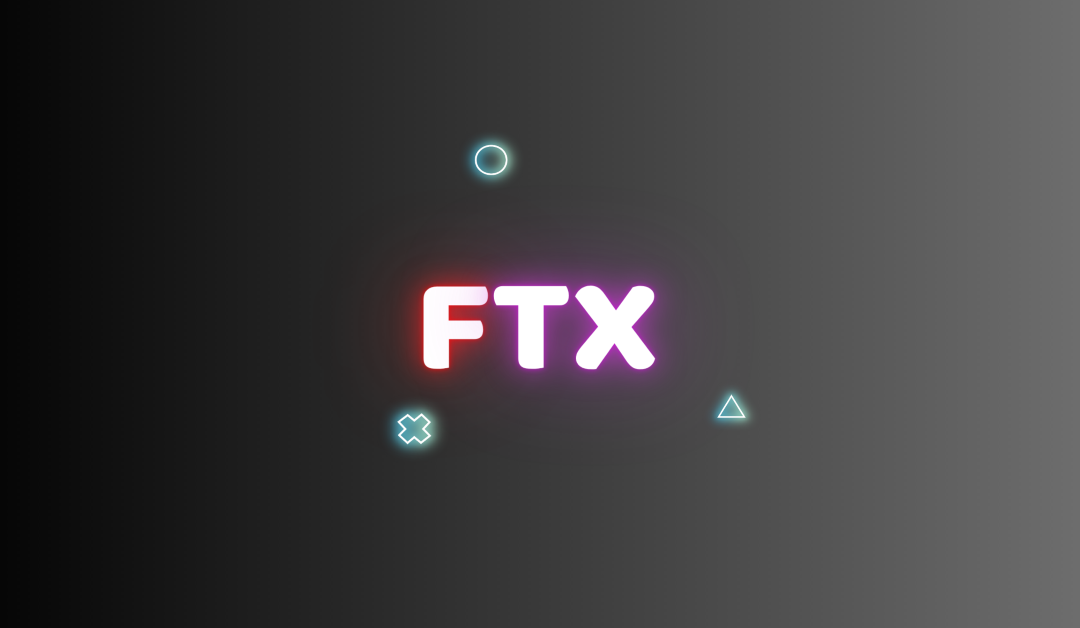
by Fintech Express | Feb 10, 2023 | Banking, Cryptocurrencies
JP Morgan, one of the largest investment banks in the world, has lately made a vaticination about the future of finance in the DeFi( Decentralized finance) space. According to the bank, deposit tokens could soon trade on DeFi platforms in an analogous manner to stablecoins.
JP Morgan thinks tokenized deposit tokens could rival stablecoins
Stablecoins are digital assets pegged to the value of an existing currency or have become decreasingly popular in the DeFi and crypto space to give stability to the frequently unpredictable cryptocurrency request. Deposit tokens, on the other hand, are assets that represent a claim on a bank deposit.
JP Morgan and consulting firm Oliver Wyman have released a report on how DeFi could be a green field for traditional banking, particularly deposit tokens. The two believe that deposit tokens could be tokenized to operate on different blockchains, with the issuer responsible for creating a DeFi-like infrastructure.
JPMorgan believes that deposit tokens could offer a new way for investors to pierce the DeFi space, as they would give a position of security and stability analogous to traditional bank deposits. The bank also believes that deposit tokens could give way for institutional investors to gain ground in the DeFi space, as they offer a familiar and regulated investment option.
Blockchain technology to continue reshaping the finance world?
This vaticination from JPMorgan is significant as it shows the growing significance of DeFi in finance and highlights the eventuality for traditional fiscal institutions to get involved in this arising request.
It’s one of the starts of a long path where banks will adopt crypto and blockchain technology. It also shows a growing interest in the crypto space by banks and other stakeholders of the traditional finance sector.
It remains to be seen how deposit tokens will be welcomed by the DeFi community and how they will fit into the overall ecosystem; additionally, JP Morgan’s vaticination is one to watch as the DeFi space continues to evolve and develop.

by Fintech Express | Feb 9, 2023 | Cryptocurrencies, Regulation
On Thursday, Coinbase CEO Brian Armstrong shared a Twitter post saying the US SEC had plots to do away with crypto staking. His Twitter thread sparked mixed reactions as the crypto community took it as a potential attack on the innovation.
Armstrong condemns SEC attack on crypto staking
In his Twitter thread, Armstrong said that they are hearing rumors the SEC would like to do away with crypto staking in the US. He said that the main target of such enforcement would be the retail investors and added that he hopes it’s not the case as it would be a terrible path for the US.
Armstrong expressed how staking is an important innovation in the crypto space, meaning it would be catastrophic if it were to be overlooked. He explained that it allows users to participate directly in open crypto networks. He stated that it brings different positive improvements to the industry, like scalability, security, and a lower carbon footprint. As such, he believes staking is not a security.
He said that the crypto community needs to ensure that technologies and innovations are encouraged and welcomed in the US and not smothered by a lack of clear rules. He added that if such financial and Web 3 tools were to be built outside the country, it could be a matter of national security.
Is regulation going to kill crypto?
In his thread, Armstrong said there are better ways out than regulation by enforcement. He said it encourages companies to operate offshore, like in the case of FTX, which could be a danger to the finance sector as they cannot be adequately monitored.
He added that he hoped all stakeholders could work together to develop clear rules governing the industry. He said such rules should be sensible solutions to protect consumers and preserve innovation and national security interests in the US.
His comments attracted mixed reactions. Cardano Co-Founder Charles Hoskinson responded and claimed that ETH staking is problematic. He explained that temporarily giving someone else your unregulated assets to help them get a return does not look good. He said a lack of good innovation that allows for staked money to be accessed and decentralized could end up lumping all betting together.

by Fintech Express | Jan 31, 2023 | Banking, Cryptocurrencies, Regulation
FTX meltdown has been monumental. Now, a series of events haunt Bankman-Fried and keep him away from what was once his crypto estate.
FTX keeps haunting Bankman-Fried
Things are getting hard for Sam Bankman-Fried as regulators prepare for the October trials, and FTX is getting liquidated. He is under house arrest after being granted a $250M bail.
Since his release, Bankman-Fried has been trying to access FTX and Alameda Funds and ‘prove’ his innocence to no avail. All that seems to be working against him. Yesterday, a series of events happened. Here is a breakdown of what transpired.
Judge rules that SBF’s $250M guarantors be made public
In a Jan 30 ruling, two sureties of the $250M bail granted to Bankman-Fried were asked to be revealed. The New York judge ruled that the two unnamed individuals who have been hidden since the bail terms were made and signed can now be exposed.
This news shocked Bankman-Fried’s legal counsel, who had highly contested that the individuals’ identities remain hidden, citing security reasons. The Judge has given them until Feb 8 to contest the ruling.
Alameda Research sues bankrupt Voyager Digital for $446M
FTX’s sister company, Alameda Research, is suing bankrupt crypto lender Voyager Digital for $446M. The ill-fated company is seeking to claw back loan repayments that FTX had made to the crypto lender before filing for bankruptcy in November.
The lawyers managing FTX and Alameda filed the motion against Voyager in a Delaware court on Jan 30. The development twist is that both companies filed for bankruptcy in 2022, but voyagers came four months earlier. Following its bankruptcy filing, it demanded that FTX and Alameda repay all loans.
According to FTX lawyers, these loans need to be clawed back as they were made near November when the exchange filed for bankruptcy. FTX claims to have paid $248.8M in September and another 4193.9M in October. It also made a $3.2M repayment of the loan’s interest in August.
The lawyers claim that the exchange used customer deposits to make the payments, meaning the process was irregular. Voyager ought to refund it so the exchange’s users can be repaid.
Justice Dept wants SBF not to access FTX and Alameda assets
The US Department of Justice is siding with a filing that seeks to bar Bankman-Fried from accessing FTX and Alameda Assets. Prosecutors are not happy that Bankman-Fried tried to contact both FTX bankruptcy CEO John Ray and FTX US general counsel Ryne Miller. The prosecutors have even produced the text and email messages between Bankman-Fried and John Ray.
In Jan 30 filings, the Department of Justice responds to a recent move by Bankman-Fried’s lawyers to amend his bail conditions, including not contacting former or current FTX employees. Bankman allegedly wanted to meet John Ray in New York to explain how Ray could access the funds.
On Jan 12, Bankman-Fried had also claimed that law firm Sullivan & Crowell had pressured him into naming Ray as his successor. In response, Ray claimed that after filing for bankruptcy, Sam Bankman-Fried was no longer the FTX CEO, and he has no role in the company, therefore, no authority to talk on the company’s behalf.

by Fintech Express | Jan 30, 2023 | Regulation
FTX did not convince the ASIC of its operations. New details show that the exchange had been served 3 notices in eight months. The surfaced report claims that the ASIC had warned about the exchange in March, the first month it began operations there.
FTX was a huge red flag
The ASIC has been shown to express concerns about the Australian FTX subsidiary eight months before the November collapse. Via documents accessed by Guardian Australia, the regulators were concerned about how the exchange conducted its business there after obtaining an operation license via a company acquisition.
After taking over IFS Markets in December, the exchange acquired the operational license in 2021. However, it only opened for business months later, in March 2022. The ASIC noted red flags in how the exchange operated its newest entity as soon as it began operations there.
The documents obtained by Guardian Australia show that the ASIC issued a section 912C notice to FTX in March, requiring it to provide information about its operations to assess if it was meeting the AFSL license requirements. Such a notice allows the ASIC to monitor the kind of financial services the licensee engages in and determine if the person is fit to hold it.
The report by Guardian Australia confirmed that the ASIC and FTX engaged for several months, with three notices being issued to the exchange in the process. However, the operations of the business remained the same. Reports have it that the ASIC was still concerned by the exchange’s operations till late October.
Is ignorance what’s fanning crypto meltdown fires?
The ASIC had seen the red flags in the operations of the FTX subsidiary in the country but did not take any legal action like bans or fines. The ASIC is not the only regulatory body that has had clashes with FTX.
Recently, the CFTC expressed that it was concerned with venture capitalists (VCs) not taking charge of how their money was working in FTX. It said that it would make arrangements to question those VCs and figure out whether they ignored FTX red flags or needed to make an effort to know how their investments were fairing.
FTX is not the only meltdown that shows a great level of ignorance in the crypto space. Other organizations like Terra and crypto lenders like BlockFi and Celsius were never reported before they collapsed. That shows the lender never quite struck deals that allowed them to monitor how their investments were fairing or didn’t even care.
As such, it calls for all stakeholders in the financial sector to be vigilant and more active in streamlining financial vehicles like crypto and stocks. Keep watching FintechExpress for crypto and other finance-related news.

by Fintech Express | Jan 27, 2023 | Blockchain
The price of Polygon Matic has risen by 48% in 2023, regardless of the ongoing crypto bear run. The price surge follows an increase in its usage of blockchain, becoming the second one in the most recorded daily transactions.
Polygon Matic price defies bear run
Ethereum’s scaling solution, Polygon, has been experiencing a surge in daily usage. As a result, its native coin, MATIC, is gaining in price. It has risen by 48% in 2023, with a 12% rise in the past 24 hours.
The Polygon team has been busy developing it and making strategic partnerships. In December, it announced that it had increased DAUs, which may be a reason behind its surge in usage and price of its crypto.
It is also anticipating the mainnet launch of its zero knowledge-EVM early this year following its successful test net launch in October 2022.




